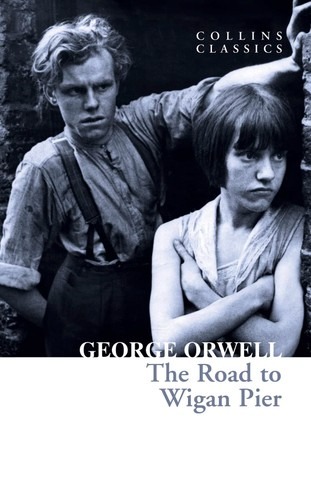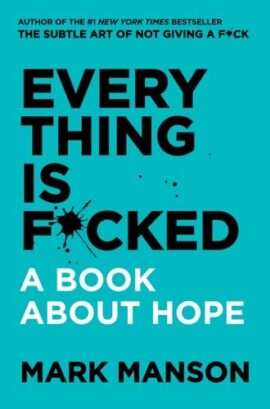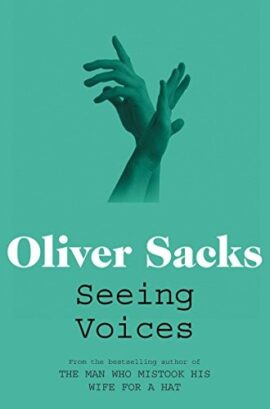The Road to Wigan Pier (Collins Classics)
700,00 د.ج
HarperCollins is proud to present its incredible range of best-loved, essential classics.
If there is one man to whom I do feel myself inferior, it is a coalminer.
In the mid-1930s, George Orwell was given an assignment from his publisher – to write a book about unemployment and social conditions in the economically depressed north of England. Revolutionary for its time, The Road to Wigan Pier documents Orwell’s stint in towns likes Barnsley, Sheffield and Wigan in 1936, where he met and observed working-class people living in the bleak industrial heartlands of Yorkshire and Lancashire.
Orwell graphically and emphatically describes the hardships of ordinary people living in cramped slum housing, working in dangerous mines and growing hungry through malnutrition and social injustice. It is an honest, gripping and humane study that also looks at socialism as a solution to the problems facing working-class northerners – something many readers at the time were uncomfortable discussing.
The Road to Wigan Pier cemented ideas that would be found in Orwell’s later works, and remains a powerful portrait of poverty, injustice and class divisions in Britain to this day.
HarperCollins is proud to present its incredible range of best-loved, essential classics.
If there is one man to whom I do feel myself inferior, it is a coalminer.
In the mid-1930s, George Orwell was given an assignment from his publisher – to write a book about unemployment and social conditions in the economically depressed north of England. Revolutionary for its time, The Road to Wigan Pier documents Orwell’s stint in towns likes Barnsley, Sheffield and Wigan in 1936, where he met and observed working-class people living in the bleak industrial heartlands of Yorkshire and Lancashire.
Orwell graphically and emphatically describes the hardships of ordinary people living in cramped slum housing, working in dangerous mines and growing hungry through malnutrition and social injustice. It is an honest, gripping and humane study that also looks at socialism as a solution to the problems facing working-class northerners – something many readers at the time were uncomfortable discussing.
The Road to Wigan Pier cemented ideas that would be found in Orwell’s later works, and remains a powerful portrait of poverty, injustice and class divisions in Britain to this day.
| Editeur |
|---|
Produits similaires
Everything Is F*cked: A Book About Hope
“Just because everything appears to be a mess doesn’t mean you have to be one. Mark Manson’s book is a call to arms for a better life and better world and could not be more needed right now.” — Ryan Holiday, bestselling author of The Obstacle is the Way and Ego is the Enemy
From the author of the international mega-bestseller The Subtle Art of Not Giving A F*ck comes a counterintuitive guide to the problems of hope.
We live in an interesting time. Materially, everything is the best it’s ever been—we are freer, healthier and wealthier than any people in human history. Yet, somehow everything seems to be irreparably and horribly f*cked—the planet is warming, governments are failing, economies are collapsing, and everyone is perpetually offended on Twitter. At this moment in history, when we have access to technology, education and communication our ancestors couldn’t even dream of, so many of us come back to an overriding feeling of hopelessness.
What’s going on? If anyone can put a name to our current malaise and help fix it, it’s Mark Manson. In 2016, Manson published The Subtle Art of Not Giving A F*ck, a book that brilliantly gave shape to the ever-present, low-level hum of anxiety that permeates modern living. He showed us that technology had made it too easy to care about the wrong things, that our culture had convinced us that the world owed us something when it didn’t—and worst of all, that our modern and maddening urge to always find happiness only served to make us unhappier. Instead, the “subtle art” of that title turned out to be a bold challenge: to choose your struggle; to narrow and focus and find the pain you want to sustain. The result was a book that became an international phenomenon, selling millions of copies worldwide while becoming the #1 bestseller in 13 different countries.
In Everthing Is F*cked, Manson turns his gaze from the inevitable flaws within each individual self to the endless calamities taking place in the world around us. Drawing from the pool of psychological research on these topics, as well as the timeless wisdom of philosophers such as Plato, Nietzsche, and Tom Waits, he dissects religion and politics and the uncomfortable ways they have come to resemble one another. He looks at our relationships with money, entertainment and the internet, and how too much of a good thing can psychologically eat us alive. He openly defies our definitions of faith, happiness, freedom—and even of hope itself.
With his usual mix of erudition and where-the-f*ck-did-that-come-from humor, Manson takes us by the collar and challenges us to be more honest with ourselves and connected with the world in ways we probably haven’t considered before. It’s another counterintuitive romp through the pain in our hearts and the stress of our soul. One of the great modern writers has produced another book that will set the agenda for years to come.
The Hidden Life of Trees: What They Feel, How They Communicate
Dear Ijeawele, or a Feminist Manifesto in Fifteen Suggestions
A few years ago, Chimamanda Ngozi Adichie received a letter from a dear friend from childhood, asking how to raise her new baby girl a feminist.
Although she has written and spoken out widely about feminism, Adichie wasn't sure how to advise her friend Ijeawele. But as a person who'd babysat, had loved her nieces and nephews, and now, too, was the mother of a daughter herself, she thought she would try. So she sent Ijeawele a letter with some suggestions--15 in all--which she has now decided to share with the world.
Compelling, direct, wryly funny, and perceptive, Dear Ijeawele offers specifics on how we can empower our daughters to become strong, independent women. Here, too, are ways parents can raise their children--both sons and daughters--beyond a culture's limiting gender prescriptions. This short, sharp work rings out in Chimamanda's voice: infused with deep honesty, clarity, strength, and above all love. She speaks to the important work of raising a girl in today's world, and provides her readers with a clear proposal for inclusive, nuanced thinking. Here we have not only a rousing manifesto, but a powerful gift for all people invested in the idea of creating a just society--an endeavour now more urgent and important than ever.









